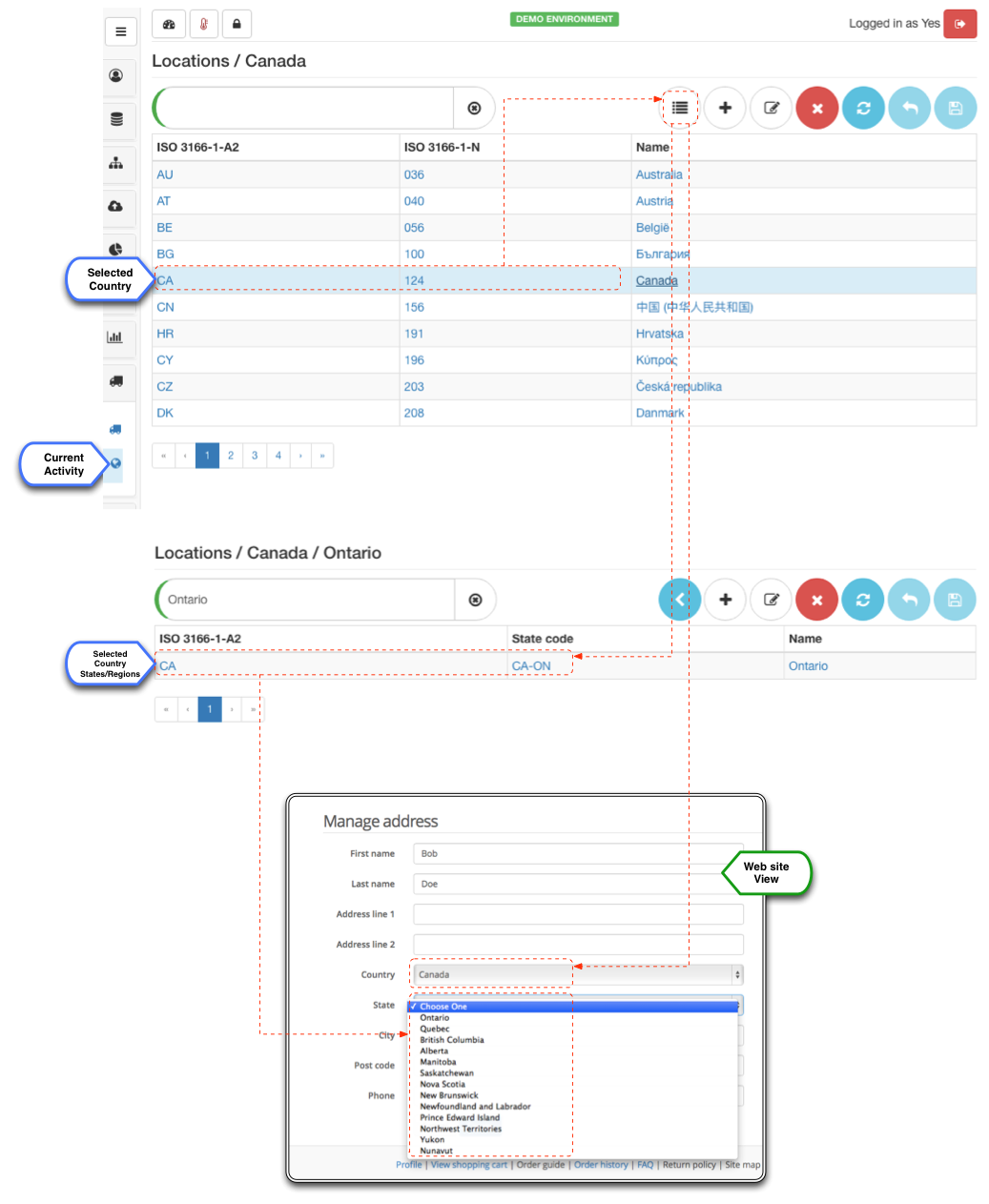Overview
Locations are used by the platform to identify customer's billing and shipping address geo location. Geo location then can be used by taxation configuration or custom modules for fulfilment.
Each location is represented by state, which belongs to a country. Because this is a well defined geographic data it is shared by all shops hosted on the platform and therefore can only be entered by the system administrator. Once all locations are setup each shop can assign countries where it operates thus limiting the customer choice of the available locations during address book management.
Country data consists of four elements: ISO 3166-1-A1 two letter country code, ISO 3166-1-N three digit country code, basic name and local name. Basic name is internal name for business operations, whereas local name represents customer facing name of the country visible on the storefront.
When specific country is selected in the data table the list of states related to that country is displayed in sub table. State information is optional and does not need to be specified. State comprises of: state code, basic name and local name. Basic and local names are used in the same way as country data. State code is unique reference of the state but it does not follow any international standards. We recommend either to use same value as basic name or use country code with some sort of suffix, such as first two letters of state name.
When configuring shop instance a country may or may not be selected for shipping or billing address types. This will directly influence what options are visible to the customer on the web site. Note that platform will automatically filter out any address in the customer's address book, which has location that is unavailable to the current shop.
